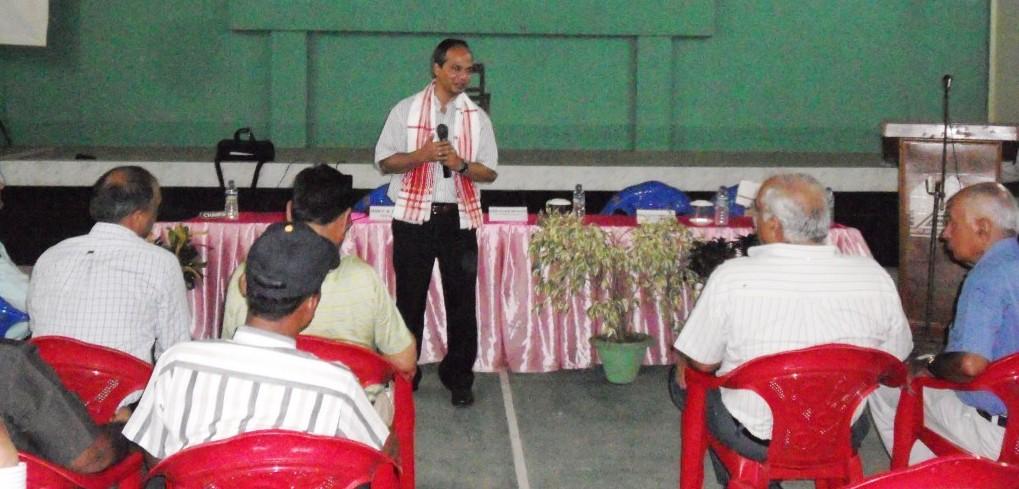A seminar on climate change and water management issues in tea industry was held at Golaghat on 1st July 2011. The seminar was organized by Tea Board in association with IIT Guwahati and coordinated by North Eastern Tea Association (NETA). The keynote speaker of the seminar was Prof. A.K. Sarma, B.P.Chaliha Chair Professor for Water Resources, a chair established by Ministry of Water Resources, Govt. of India, to carryout research work on impact of climate change in the water resources of Brahmaputra Basin. The seminar was chaired by Rakesh Saini, Executive Director Tea Board and attended by Prof. S.K. Deb of IIT Guwahati, P.K. Sarma, a field expert of climate change project and many tea planters of Golaghat, Jorhat and Karbi Anglong districts.
The preliminary studies carried out by IIT Guwahati on impact of climate change on water resources of Brahmaputra Basin reveal that there will be significant changes in rainfall pattern and temperature of this Basin. High intensity rainfall of shorter duration and longer dry spells will adversely affect flood and drought scenario of this region.
Speaking on the occasion Bidyananda Barkakoty, Chairman NETA said that tea gardens have provided rainfall & other climatic data, which are considered to be the most authentic, to IIT Guwahati for the research work on impact of climate change in the water resources of Brahmaputra Basin and thereby we are contributing in our own small way to the national cause.
Rakesh Saini, Executive Director, Tea Board was of the opinion that the water management in tea gardens had always been a complex art and science, involving effective drainage to avoid water logging and flooding in rainy days and ensuring water availability for irrigation in draughty season. In the recent years, the subject has assumed greater significance due to visibility of climate change footprints in this region. The geographical and time pattern of rainfall is changing erratically and temperatures are rising. These variations require revisiting the available techniques of water management in tea gardens. Indigenous, innovative and cost-effective techniques of harvesting rain water have become inescapable. The academic institution of national importance like IIT Guwahati can make valuable contribution in seeking these methods and technologies.
Kirti Barbaruah of Gorunga T.E. said that with the change in climate, water harvesting in a scientific way will go a long way in solving the water management problem of the tea industry.
Jadoo Goswami, Senior Tea Consultant of Assam further added that a study is required to know the rate of evaporation of moisture due to wind velocity and a study to know the soil texture for retention of water particularly in Golaghat and Karbi-Anglong districts.
During the seminar various issues like rain water harvesting to do in a more scientific way, the blocking of natural water outlets of tea estates are by neighboring villagers and thereby the problem of water stagnation and flash floods in many tea estates, erosion of tea estate land by river and wrong placements of culverts by PWD during new road construction and thereby the natural outlet of tea estate is disturbed and resulted in water logging were also came up for discussion.
Tea Board had organized this seminar with the objective of facilitating the tea industry to project the climate change related issues (i.e. Soil Erosion, Water management, Rain water harvesting and problems arising out of clogging/ blockages of natural drainage outflow network etc, in tea industry).and facilitating the Project team in understanding these issues, offering available technological solutions or dovetailing presently unsolvable problems into study project.
- 8622 reads










Add new comment